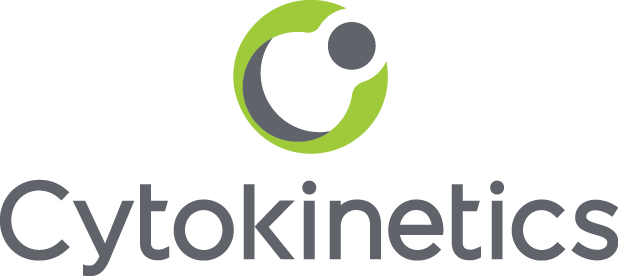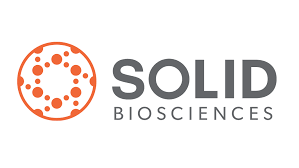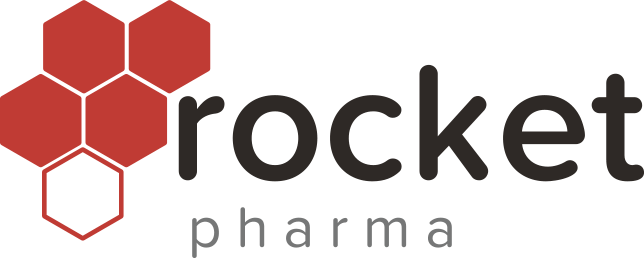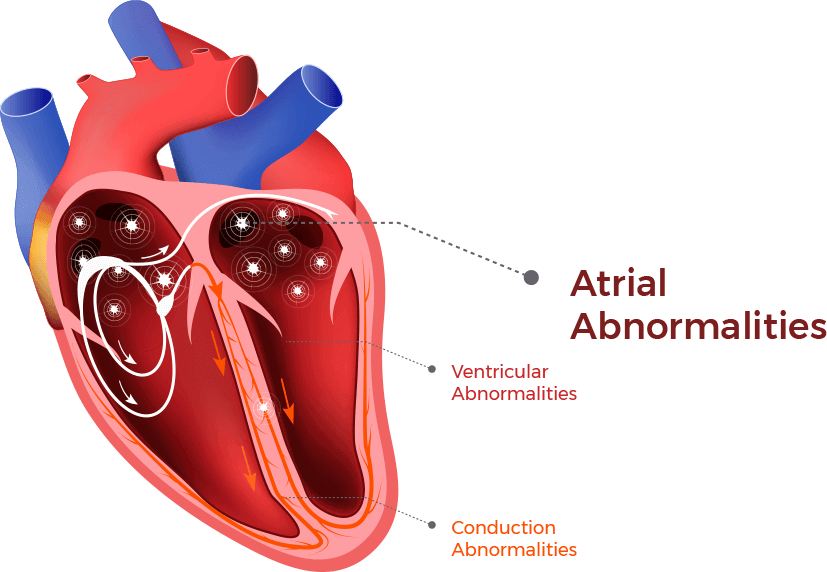
What are Atrial Arrhythmias?
The two most common atrial arrhythmias that occur in people with DCM are atrial fibrillation and atrial flutter. They are two distinct types of arrhythmias, but are often related to one another.
Atrial Fibrillation
Atrial fibrillation is the most common abnormal heart rhythm, which commonly occurs in those who do not have DCM and more frequently in people as they age. It also commonly occurs in individuals with DCM, and when it does, can be a major problem. The heart function, which may already be reduced, can be reduced further when atrial fibrillation is present and heart failure symptoms may then worsen. Atrial fibrillation is caused by a lot of electrical stimulations in the atria. They occur randomly and rapidly, causing the heart’s rhythm to be irregular and often fast. They can be a cause for palpitations (feeling of the heart beating fast, hard, pounding, fluttering).
Atrial fibrillation can be a permanent rhythm, or it can come and go, which is called paroxysmal atrial fibrillation. Often paroxysmal atrial fibrillation can be more bothersome than permanent atrial fibrillation because it may be very noticeable when the heart suddenly goes from a normal rhythm to atrial fibrillation, then back to a normal rhythm.
What is the treatment for Atrial Fibrillation?
Treatment strategies are focused on controlling the rate of the rhythm (it is often fast), reducing the risk of associated stroke, preventing the rhythm from occurring, and eliminating the rhythm. The rate of the rhythm can often be controlled by using certain drugs. The risk of stroke is reduced with medications called anticoagulants. Specific drugs, called antiarrhythmics, can help prevent the rhythm from occurring. Antiarrhythmic drugs, electrical cardioversion, and/or ablation therapy are used to eliminate the rhythm.
Electrical cardioversion is when an electric shock is given over the heart to return the heart rhythm back to normal. This is most often done as an elective, scheduled procedure under sedation or anesthesia; but it can also be done emergently if the presence of atrial fibrillation is causing an unstable state, like low blood pressure.
Ablation therapy is the use of catheters and forms of energy to destroy tissue from where atrial fibrillation originates from. This can be an important and successful therapy for many people with paroxysmal atrial fibrillation, although it may not be quite as successful in those with permanent atrial fibrillation. Consultation with cardiologists who specialize in these procedures (electrophysiologist) is appropriate.
Atrial Flutter
Atrial flutter is a more organized heart rhythm abnormality and often originates from a very specific area in the atria. It can cause a fast heart rate, but it is not unusual for the heart rate to be normal. Like atrial fibrillation, the presence of atrial flutter can further compromise heart function and worsen heart failure symptoms. Individuals with DCM who have atrial flutter, have the same risk of stroke as those with atrial fibrillation.
What is the treatment for Atrial Flutter?
The treatments are the same as for atrial fibrillation, except that ablation therapy is a first-line therapy to eliminate the abnormal rhythm for most people with stable atrial flutter.
QRS Complex
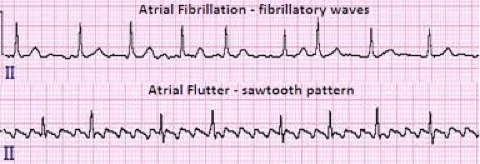
The upper electrocardiogram (ECG) shows atrial fibrillation. Note that the pattern is irregular. The bottom ECG shows atrial flutter, which is often more regular than atrial fibrillation and has a “saw tooth” pattern between the QRS complexes.
Click to Explore:
VENTRICULAR ABNORMALITIES
CONDUCTION ABNORMALITIES
DCM AND COMMON ARRHYTHMIAS

